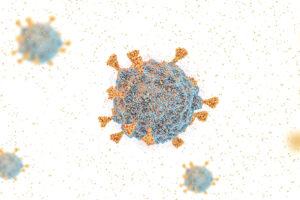Infectious Diseases
Influenza
Influenza Vaccination Safety Considerations in Pediatric Patients
Overview
Widespread and largely mistaken beliefs about vaccination are triggering calls for public messaging that highlights the benefits of vaccination while also acknowledging year-to-year variability in efficacy and established safety data.
Expert Commentary
Flor M. Muñoz, MD, MSc, FAAP
|
|
“While each of the influenza vaccines has its own characteristics, it is important for clinicians to convey the message that vaccines are effective in preventing influenza complications and mortality—and that failing to vaccinate against influenza poses a greater risk than the vaccines themselves.”
We currently have numerous influenza vaccines for children, as well as high-dose and adjuvanted influenza vaccines for adults aged 65 years and older. In addition to the traditional egg-based vaccines, we also have recombinant influenza vaccines for those aged 18 years and older that do not require an egg-grown vaccine virus. While each of the influenza vaccines has its own characteristics, it is important for clinicians to convey the message that vaccines are effective in preventing influenza complications and mortality—and that failing to vaccinate against influenza poses a greater risk than the vaccines themselves.
Approximately two-thirds of patients who receive the influenza vaccine given as an intramuscular injection experience soreness at the site of injection. Other common side effects of the injectable vaccines include malaise, body aches, and sometimes fever and other mild to moderate systemic symptoms that last for 1 or 2 days after vaccination. The live attenuated influenza vaccine (LAIV), meanwhile, can cause nasal congestion and sore throat. None of these symptoms are from influenza; instead, they are indicators that the immune system is responding to the vaccine by making protective antibodies (ie, that the vaccine is working). It is not possible for the influenza vaccine to cause influenza.
Febrile seizures after influenza vaccination are rare—and it should be noted that influenza, itself, may also cause febrile seizures. Allergic, anaphylactic response to any component of the vaccine or to a previous dose of an influenza vaccine is an absolute contraindication to vaccination. Serious clinical reactions to vaccines, including those for influenza, are rare, estimated at approximately 1 in 1 million doses. Observing the precautions and contraindications listed in the vaccine labeling helps to maximize vaccine safety. The LAIV is contraindicated with concomitant aspirin therapy and has a precaution for children younger than 5 years of age with recurrent wheezing. Since the LAIV is a live attenuated vaccine, precautions for altered immunocompetence and other underlying medical conditions also apply. If thimerosal or preservatives are a concern for parents, most single-dose vials and prefilled syringes of injectable influenza vaccines and the LAIV do not contain a preservative because they are intended to be used only once. Many safe and effective options exist today for influenza vaccination.
References
Centers for Disease Control and Prevention. Febrile seizures following childhood vaccinations, including influenza vaccination. https://www.cdc.gov/flu/prevent/febrile.htm. Accessed January 16, 2020.
Centers for Disease Control and Prevention. How influenza (flu) vaccines are made. https://www.cdc.gov/flu/prevent/how-fluvaccine-made.htm#recombinant. Accessed October 23, 2019.
Centers for Disease Control and Prevention. Influenza (flu) vaccine safety. Flu disease and how to protect against it. https://www.cdc.gov/vaccinesafety/vaccines/flu-vaccine.html. Accessed October 23, 2019.
Sawyer MH, Simon G, Byington C. Vaccines and febrile seizures: quantifying the risk. Pediatrics. 2016;138(1):e20160976.











